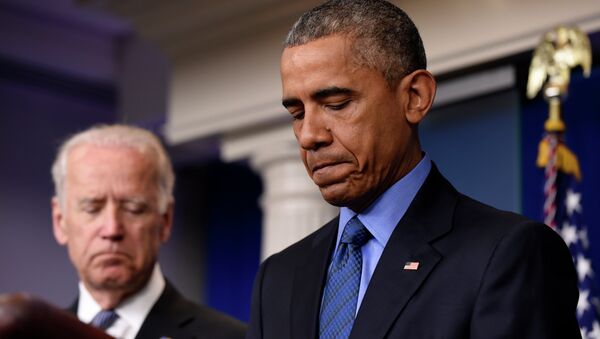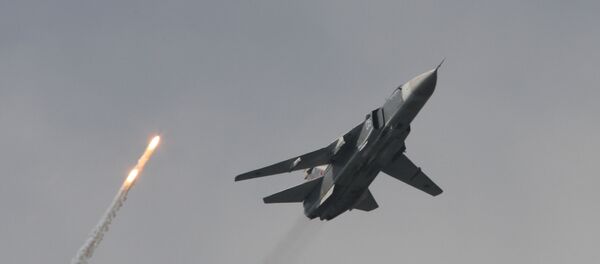After nearly a month of Russia’s airstrikes against the self-proclaimed Islamic State terrorist group, the militants’ infrastructure is crumbling. On Wednesday alone, the Russian fighters carried out 71 successful sorties against 118 targets, and a number of refugees are returning to their homes as terrorists flee.
The success of Moscow’s campaign has shown just how ineffective the US-led coalition’s year-long effort really was. America’s plan to train and equip so-called “moderate” rebels also ended in failure. At risk of losing international clout, President Obama is scrambling to adapt his strategy.
"Fear is driving Obama’s latest rethink: fear that Russia and Iran are winning the strategic tug-of-war for decisive influence in both Syria and Iraq," Simon Tisdall writes for the Guardian, "and fear that his Middle East legacy will be an anarchic arc of muddle and mayhem stretching from Mosul to the Mediterranean."
The US is considering a wide range of options. For one, a fleet of attack helicopters may be deployed to Iraq. The Pentagon may also increase the number of target-spotters in an effort to improve the accuracy of coalition bombers.
Officials may also decide implementing closer cooperation with Syrian Kurdish militias, even those Turkey has argued vehemently against such an alliance.
But the biggest policy change is the possibility that the Obama administration will place boots on the ground in Syria, breaking the president’s longtime pledge of keeping US ground forces out of further entanglements in the Middle East.
"We won’t hold back from supporting capable partners in opportunistic attacks against ISIL, or conducting such missions directly whether by strikes from the air or direct action on the ground," US Defense Secretary Ashton Carter said before the Senate Armed Services Committee on Tuesday.
"…This latest rejig smacks of desperation," Tisdall writes. "It is another reminder of how Obama’s trademark policy to free the US of its Middle Eastern military entanglements has foundered on geopolitical realities."
Washington’s recent flexibility on the ultimate fate of Syrian President Bashar al-Assad is also a sign of the US losing influence to Russia, as is Iran’s recent inclusion in Syrian talks, the latter a "concession prompted by US weakness."
"Obama’s predicament helps explain why the US is showing more interest in a compromise transition deal to end the Syrian war, along lines proposed by Moscow," Tisdall writes.
"Commentators say the White House is ready to try anything."
According to US officials speaking on condition of anonymity to the Washington Post, the possibility of placing US troops on the ground is still under discussion, and require formal approval from President Obama.





